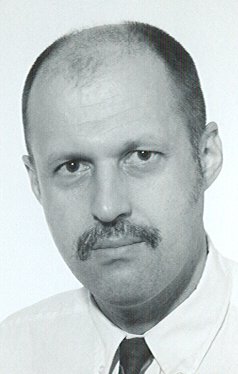Stowell, T.A.

Timothy Stowell, born in Ottawa, Canada, in 1954. Ph.D. from the Massachusetts Institute of Technology, Cambridge. Associate Professor of Linguistics at the University of California, Los Angeles.
Fellow (1 September 1996 – 31 January 1997)
I was a member of the theme group on syntactic case studies; we were working together through the fall on the initial planning and design of an encyclopaedic compendium of syntactic case studies – domains of phenomena that have played an important role in the development of generative grammar, the theory of the representation of knowledge of grammar in the human mind. Since this work will be published in the new medium of an interactive CD-ROM-based document, we had to train ourselves how to write in a new way – making extensive use of Hypertext links, not only within our individual case studies, but also between them.
During my fall at NIAS, I made substantial progress on two of my eventual four case studies. One is devoted to the Syntax of the Distributive Quantifier ‘each’, which occurs in a wide variety of syntactic environments, and which exhibits some surprising and apparently contradictory properties. In December 1996, I gave a lecture at the University of Groningen on this topic. The other case study that I worked on concerns Sequence of Tense, the process whereby tensed verbs in subordinate clauses of indirect discourse exhibit a morphological past tense, under the influence of a past tense occurring in the main clause. In January 1997, I gave a NIAS Lecture on this topic.
I also managed to devote some time at NIAS to two other ongoing research projects. My work on one of these was instigated by an invitation to give a lecture at the Free University, Amsterdam, in December 1996. I presented an in-depth syntactic analysis of the structural constraints on the omission of articles, copular verbs, and tense markers in the abbreviated register of written English, as in headlines such as “POPE TO GIVE MASS IN KREMLIN”. This was based on a research project that I originally began several years ago but left unfinished, and my stay at NIAS enabled me to undertake a revision of this work, which I plan to publish as a journal article. I also managed to make some progress on the revision of a monograph on the syntax and logic of quantifier scope that I am writing in collaboration with a former student, Filippo Beghelli. In this study, we develop an account of various asymmetries in scopal properties among certain quantifier-types, in terms of a theory of quantifier-type-specific functional categories